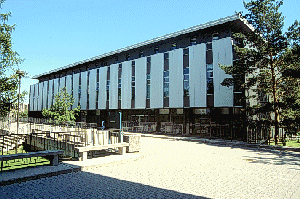PDF
Music and power : a conservative musical soundscape in Britain, 1830-1850 Item Info
- Title:
- Music and power : a conservative musical soundscape in Britain, 1830-1850
- Creator:
- Guiguet, Kristina Marie
- Date Created:
- 2010
- Degree Awarded:
- Doctor of Philosophy
- Subjects:
- Soundscapes (Music) Great Britain 19th century Music Great Britain 19th century History And Criticism Music and historty Great Britain 19th century Music Social Aspects Great Britain 19th century Music, Influence of Great Britain 19th century Musical analysis Gender mainstreaming
- Geographical Focus:
- Britain
- Supporting Materials:
- n/a
- Description:
- Music was pervasive in nineteenth-century life, but has seldom been considered as an integral form of political and social discourse. A core problem for cultural history is a reliable methodology for asking period audiences what music meant to their daily lives and formal politics. Building out from the private concert programmes and diary of the wealthy gentry woman, Lady Hunter, a whole landscape or “soundscape” of related sites of musical activity is found to have been a coherent, conservative community. Whether in drawing-room concerts, the private Noblemen and Gentlemen’s Catch Club of London, public, professional performances of opera and chamber music, or the short-lived Conservative Festivals (a form of convivial, political dinners), musical life was a form of cultural and political opposition to 1830s Reform. A wide range of documentation associated with private concert programmes, including private papers, newspaper reports, sheet music, and architectural drawings, is informed by extensive secondary scholarship in cultural, social, gender and political history, and musicology. Records of musical life, like programmes, reveal audience musical preferences but rarely describe musical choices in terms of political values, ideas, or beliefs. A new lexicon for such intentions in musical life is developed through close analysis of the music and song lyrics chosen for the Conservative Festivals. Held between 1835 and 1841 to restore the political Party’s Parliamentary fortunes in the wake of Reform, the Festivals used a diverse range of music that was tightly consistent with Conservative arguments in favour of the heritable, hierarchical class system. The lexicon is applied across the many kinds of musical performance of Lady Hunter’s musical world. The use of music in conservative politics and leisure between 1830 and 1848 was unified by the concept of a conservative musical soundscape, a virtual community supporting the idea that hierarchies of intrinsically different kinds of human beings marked by class and gender were natural, historic, and good. The silken drawing room concerts of the astoundingly wealthy Lady Hunter were at the heart of a class-crossing soundscape of conservative values, demonstrating that musical life of the time was a discourse of personal and civic power.
Source
- Preferred Citation:
- Guiguet, Kristina Marie. Music and power : a conservative musical soundscape in Britain, 1830-1850. 2010. Carleton University, Doctor of Philosophy.
- Reference Link:
- https://cuhistory.github.io/grads/items/hist_119.html
Rights
- Rights:
- Copyright the author, all rights reserved, unless otherwise indicated.

